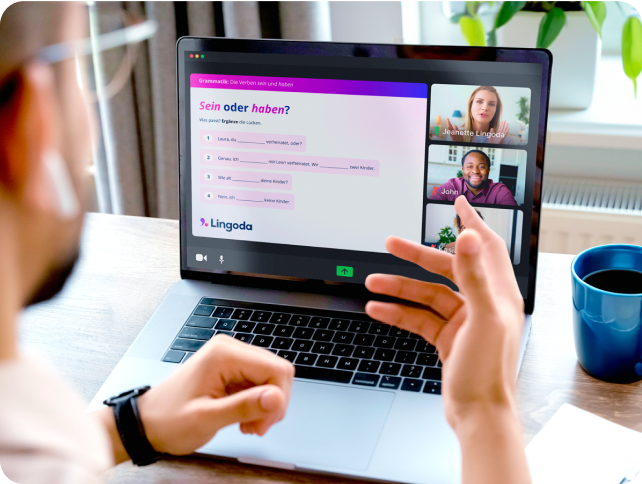
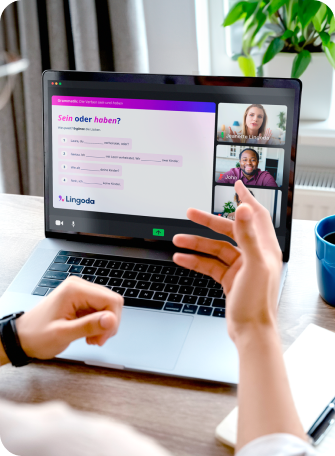
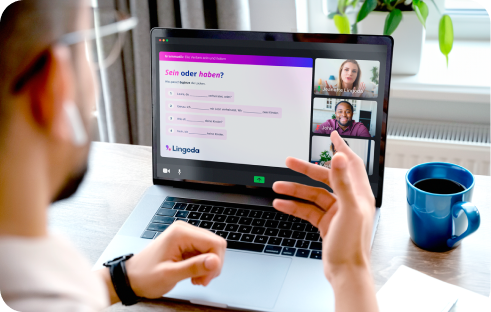
Follow our structured curriculum at each level, or, for complete flexibility, choose the classes you’d like to take.
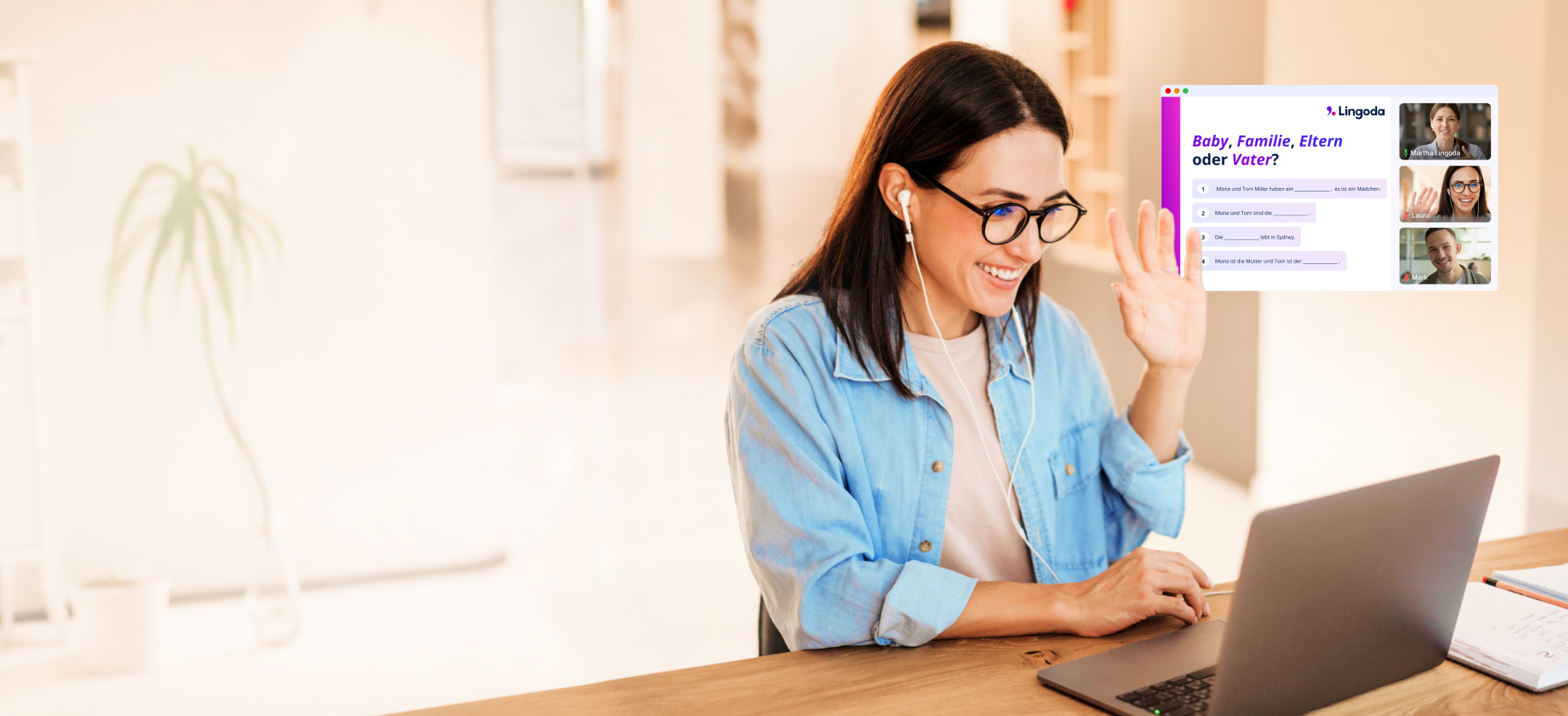

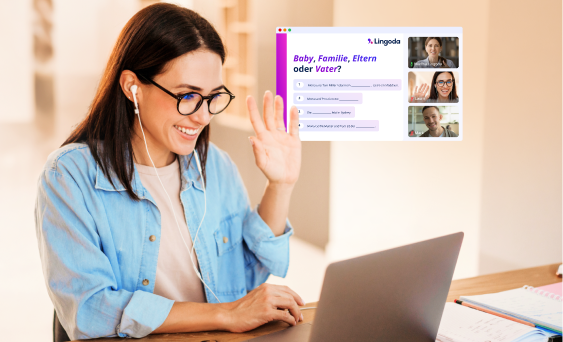
Speak German with confidence. Take our live courses, available for all levels, with professional teachers and transform your skills into life-changing moments.



Follow our structured curriculum at each level, or, for complete flexibility, choose the classes you’d like to take.



Build your confidence and learn to express yourself easily through conversation, light debate and role-playing.



You’ll be surrounded by the language and encouraged to speak in classes that have a maximum of 5 students.
Get inspired by our students' success stories
Hear how our students transformed their first language steps into life-changing moments. Let their stories motivate you to get your own language wins.
Each course is divided into specific learning levels. We teach up to C1 in German.
Don’t know your German level?
Take our placement testOur language lessons focus on topics that are important for you and your everyday life, so you can use what you’ve learned right away.
Our expert teachers make complex grammar interesting and easy to understand and will also teach you regional language differences.
Plus, you’ll learn phrases and vocabulary that Germans use all the time.



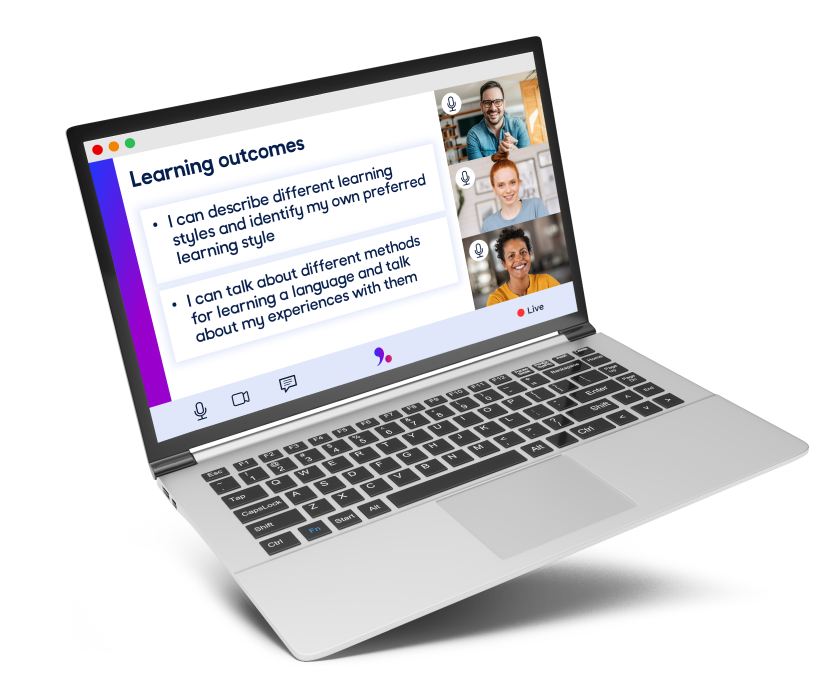
Peek inside a class, discover how to book a lesson and what extra studying opportunities there are for you.
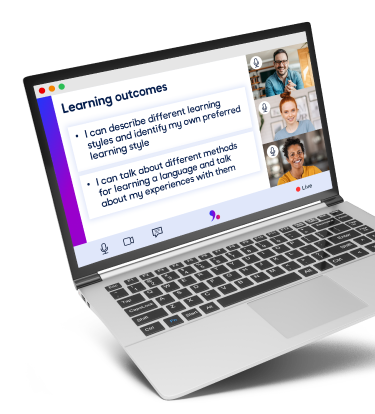
Recommended by other students
Frequently asked questions
As a Lingoda student, you can download the class materials for free and use them at any time. After your class, you will also find a quiz to help you refresh and practice your new skills. There are also downloadable exercises available. All materials are uniquely created by Lingoda experts to align with CEFR standards. If you want to learn more about CEFR, read more here.
After scheduling a German class on our platform, you will be able to join the class with 2-4 fellow students from around the world. The teacher will introduce themselves and begin teaching the lesson using learning materials that you can download at the end of class. You will be able to interact with the teacher and other students, but there is no pressure to do so. Towards the end of class, the teacher will recap the lesson and ensure everybody has understood the lesson.
Both group and private classes are very effective with Lingoda, but it depends on your personal preferences what you’d like to do.
No, we are not a language learning app. We are an online language school. And like any school, we offer live classes with certified, native-speaking teachers. At Lingoda, we believe that nothing can replace live interaction and customised feedback from a real person.
Preparing to learn German online with us is simple. You need three things: a stable internet connection, a computer and the free video conferencing tool Zoom.
It depends. As is the case when learning any new skill, your progress depends on your efforts. If you would like to learn German online quickly, then we suggest that you make language learning a consistent habit. Also focus and participate in class and complete the downloadable materials at the end of each class for best results. It also depends on which of Lingoda’s online German language courses you choose, as some of our plans are more intensive than others.
Learning German online is not enough? Do you want to improve you English? Then visit our English page and learn English online!

Here at Lingoda, we firmly believe that structured, communication-based learning is the most effective approach to acquiring a new language. While you can certainly supplement your learning through audiobooks, mobile apps and other resources, it’s best to learn German online by completing a high-quality language course with a native-level teacher.
By adopting this approach, you can develop your vocabulary, learn important grammatical rules, and practice speaking out loud in a supportive environment. Your teacher will also be able to quickly identify any errors you’re making and help you to fix them, which is something that’s difficult to replicate when learning on your own.
To take an online German course with us, all you need is a computer, conferencing app and a stable internet connection. Lessons will either be one-to-one private sessions or group classes with a small number of other learners.
German can seem like an intimidating language to learn, but in reality, it’s fairly accessible.
There are concepts that English-speaking learners may find confusing, with gendered nouns serving as a good example. In English, nouns are not assigned a gender, but all German nouns are either masculine, feminine or neuter. The word for “the” also changes based on this, with “der” used for masculine nouns, “die” for feminine nouns and “das” for neuter nouns. When you learn nouns, you also need to learn the gender of the noun.
For instance, when learning the word for “table” in German, you would learn “the table” or “der Tisch”. As a result, you can determine that the German noun “Tisch” is masculine.
On the plus side, German spelling and pronunciation can actually be more intuitive and consistent than in English. With a structured German language course and quality teaching, you’ll progress quickly.
When you learn German with Lingoda, you will join online classes taught by native-level teachers. The precise way the class is organised will depend on the approach you select, and the options are as follows:
These options allow you to learn German online in a way that suits your lifestyle, schedule and preferences.
Lingoda’s German course covers the following levels:
If you’re completely new to learning German and have never taken any lessons before, you can safely jump in at A1: Absolute Beginner level and progress from there. However, if you already have some knowledge of the German language, you’ll need to know your current level so that you start learning again from the right place.
Fortunately, we’ve developed a simple placement test, which will give you an indication of your current level. Simply work through the questions, and we’ll email you your results. The test should take around five minutes. Once you have your results and know your current level, you’re ready to learn German online with Lingoda.